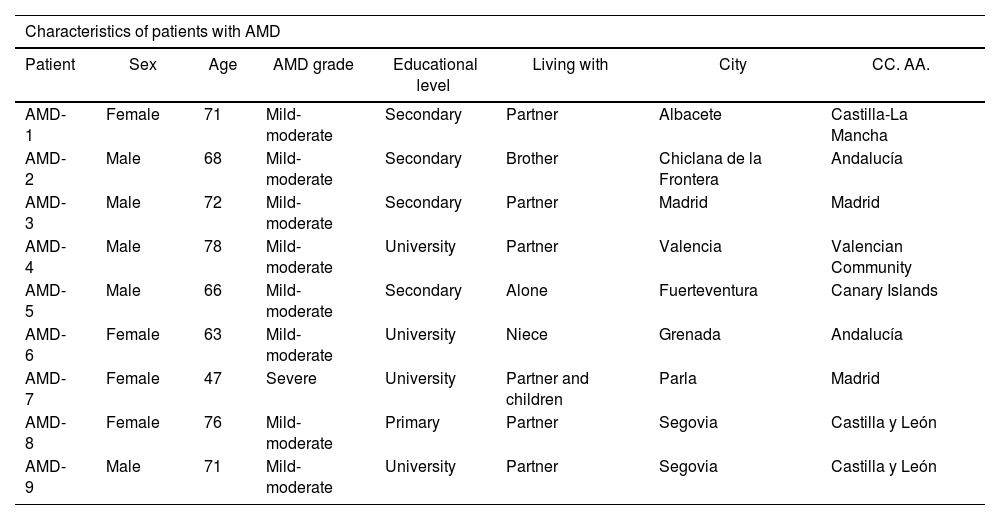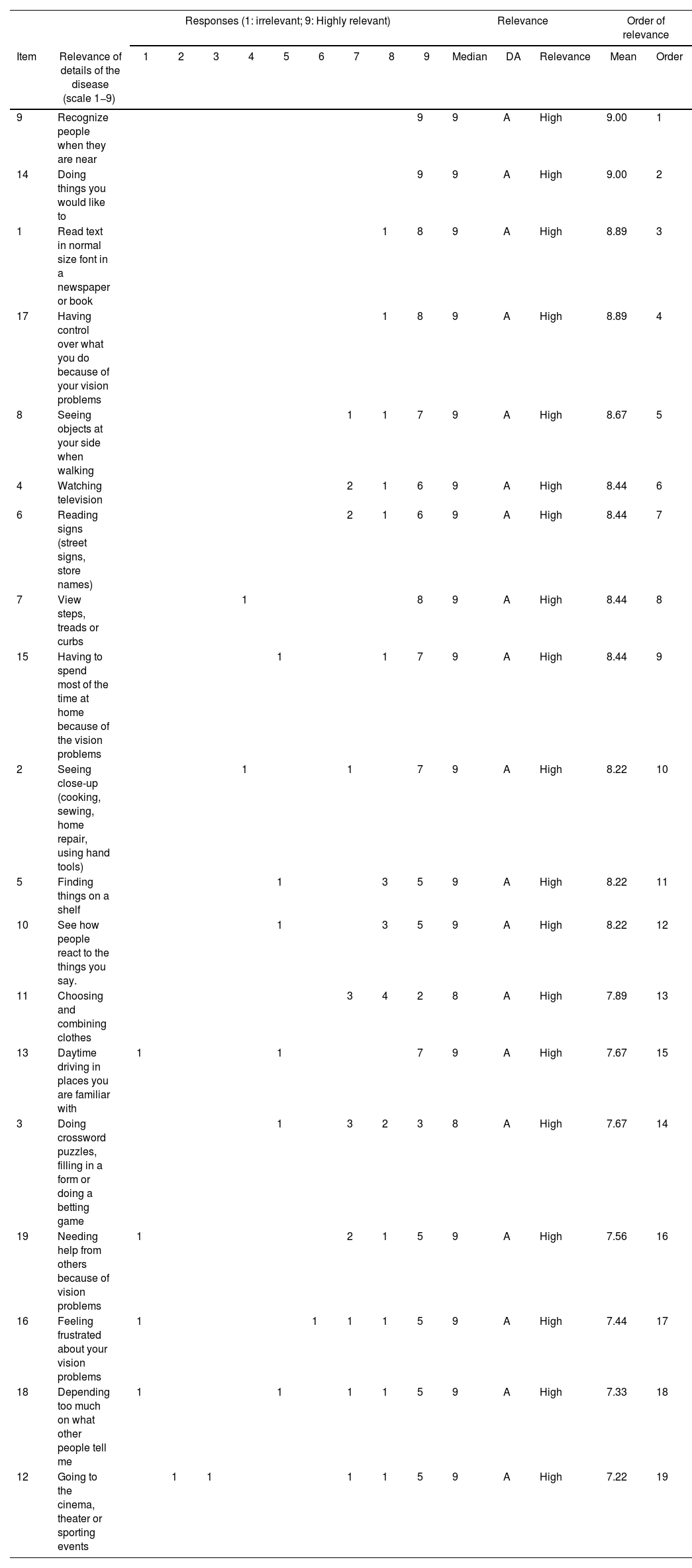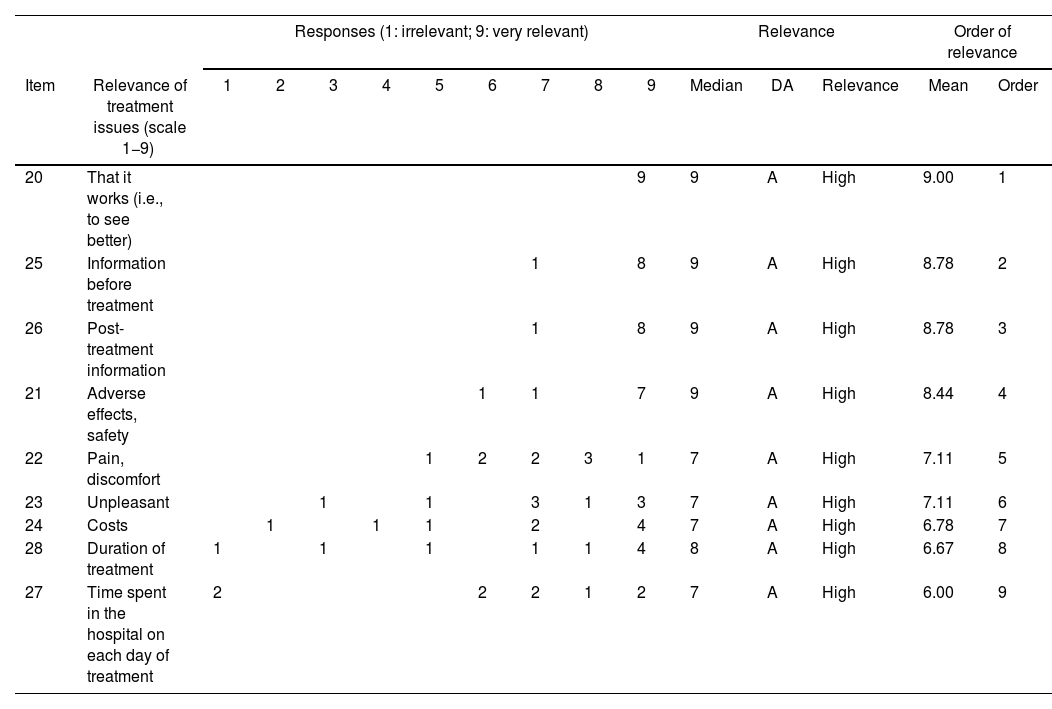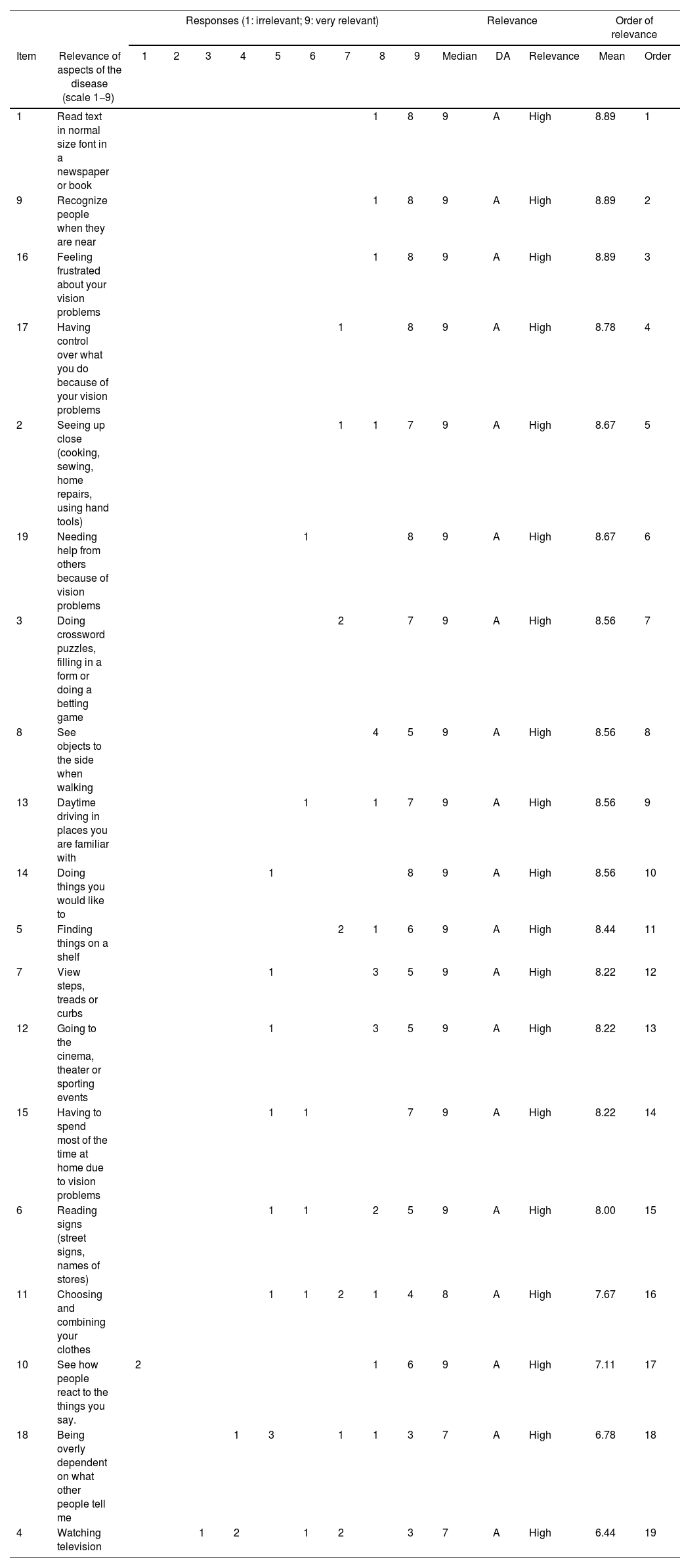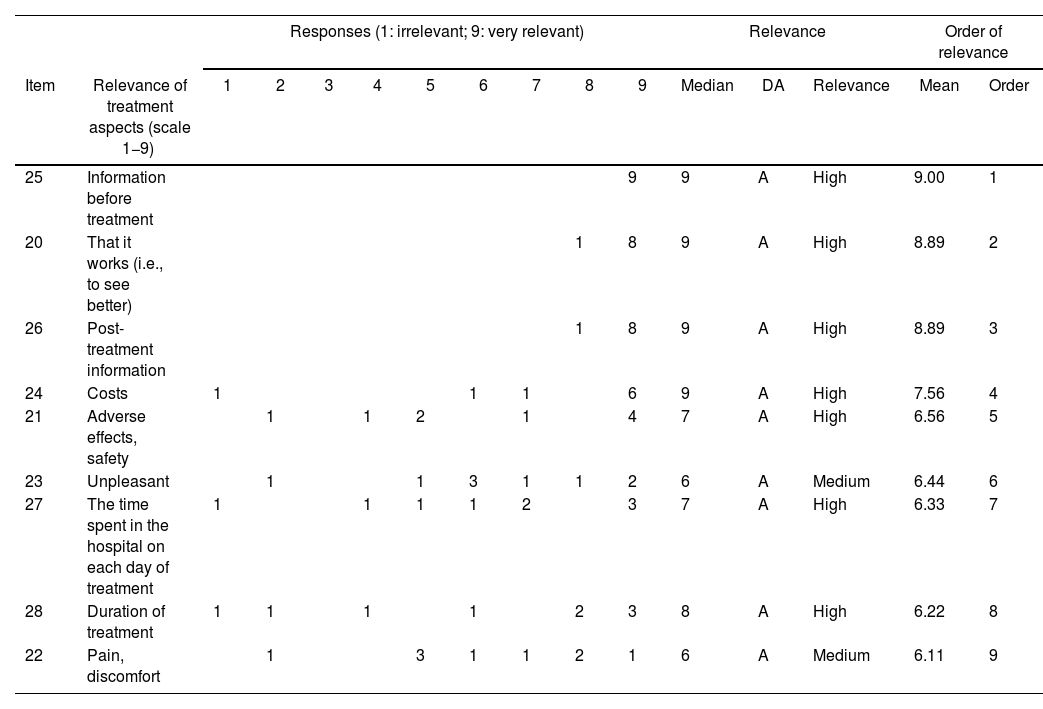Age-related macular degeneration (AMD) and diabetic retinopathy (DR) are highly prevalent.
ObjectiveTo explore perceptions of patients with AMD or DR about the impact of the disease and treatment on their daily living activities.
Materials and methodsSemi-structured interviews with a questionnaire developed from validated patient reported outcomes questionnaires. The questionnaire consisted of 19 questions about the disease and 9 about the treatment. The questions (items) were answered on a scale from 1 to 9. In addition, the patient interviewed was invited to make free comments on each question. Nine patients with AMD and 9 with DR were interviewed by videoconference or telephone call. A quantitative analysis of the responses and a qualitative analysis of the comments were carried out.
ResultsThe most relevant item for patients with AMD or DR is “Recognize people when they are nearby”, and “Read text in normal size font in a newspaper or book”, followed, in patients with AMD, by “Do things what you would like” and, in patients with DR, “Feeling frustrated by the vision problems.” Regarding the treatment, the most relevant aspects for both groups is that the treatment works and receiving appropriate information before and after the treatment. The qualitative comments were focused to the disease, the treatment, and to the role of doctors and the health system.
ConclusionQuantitative responses and free comments can be useful to improve the care of patients with AMD or DR by physicians and the health system.
La degeneración macular asociada a la edad (DMAE) y la retinopatía diabética (RD) son altamente prevalentes.
ObjetivoExplorar percepciones de pacientes con DMAE o RD sobre el impacto de la enfermedad y el tratamiento en sus actividades de la vida diaria.
Materiales y métodosEntrevistas semiestructuradas con un cuestionario elaborado partiendo de cuestionarios validados de medidas de resultado reportadas por el paciente. El cuestionario tenía 19 preguntas sobre la enfermedad y 9 sobre el tratamiento que se respondían en una escala de 1 a 9. El paciente podía expresar comentarios libres. Se entrevistó a 9 pacientes con DMAE y a 9 con RD mediante videoconferencia o llamada telefónica. Se realizó un análisis cuantitativo de las respuestas y cualitativo de los comentarios.
ResultadosLo más relevante para los pacientes con DMAE o RD es “Reconocer a personas cuando están cerca”, y “Leer texto en letra de tamaño normal en un periódico, o libro”, seguido, en pacientes con DMAE, de “Hacer cosas que le gustaría” y, en pacientes con RD, de “Sentirse frustrado/a por sus problemas de visión”. Respecto al tratamiento, lo más relevante para ambos grupos es que el tratamiento funcione y recibir información antes y después del tratamiento. Los comentarios cualitativos se refirieron a la enfermedad, tratamiento, papel de los médicos y del sistema de salud.
ConclusiónLas respuestas cuantitativas y los comentarios libres pueden ser útiles para mejorar la atención de pacientes con DMAE o RD por parte de los médicos y del sistema de salud.






